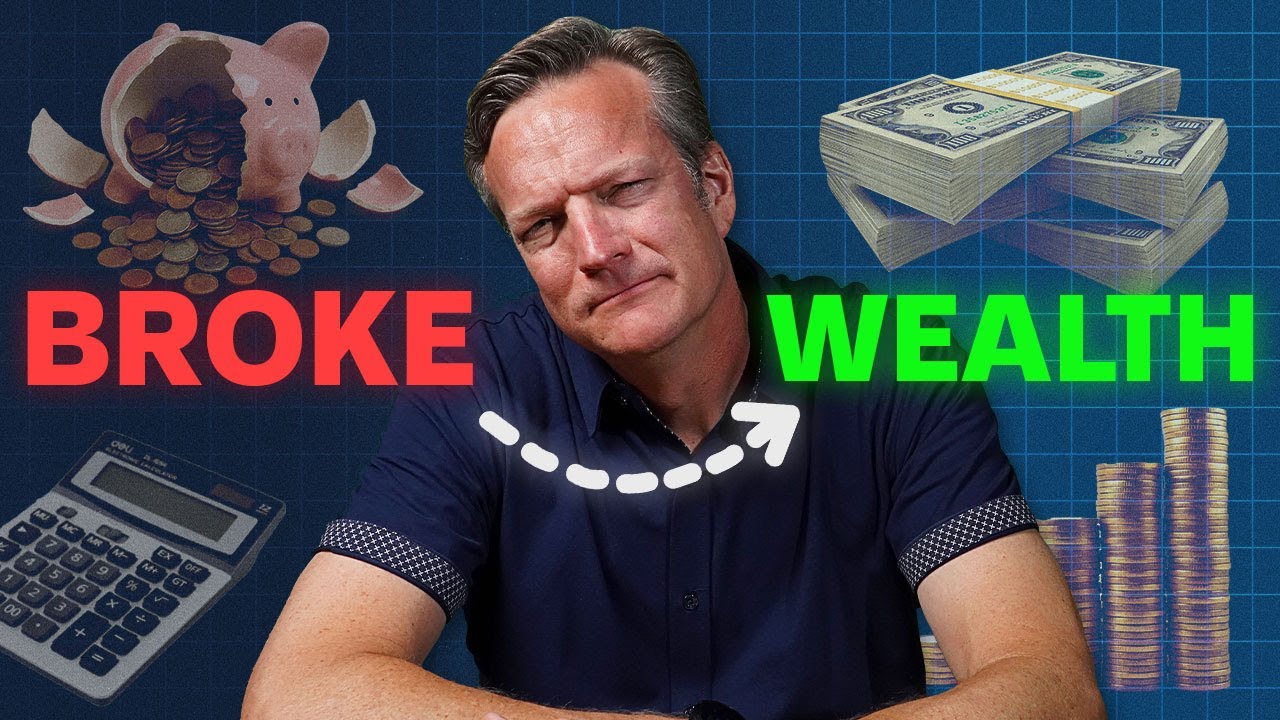Question for you guys, but it is a really interesting question. One of the criticisms of Ramsey Solutions is that the baby steps are dated. Do you anticipate ever needing to change or update the
financial order of operations, or was it written to avoid changes down the road?"
Okay, that's all right. So, that's a hard question, right? Because, was it written in a way to avoid changes down the road? Absolutely, right? Like, that was the idea, is that we want this thing to withstand the test of time. But we're also realistic that we don't live in a vacuum. Here's a really easy example, and I'm going to say this, and Brian's going to gasp, and it's going to be terrifying. What if the government one day just said, 'Hey, Roth assets are no longer tax-free'? You're thinking the same. What if they change the rules on us? Well, if they change the rules on us, or they grandfather us in or some dynamic changes, of course, we're going to have to adjust the financial order of operations. So what we did is we built it with the current rule book in place and the best way that we could come up with, but we're not going to be so stuck in that, that as the world changes and as things evolve, we don't also allow it to change and evolve with it, with the caveat that we recognize you are entrusting us for the quality of the changes that we make to it, not the quantity.
Here's a relevant example: you notice that one of the financial order pieces wasn't crypto. You notice that one of the
financial order of operations pieces wasn't 'fill in the blank' on the next hot thing. Like these are tried and true concepts that have worked for decades, not for just months or not for quarters, for decades. So, they should be pretty stinking good to stay in place as long as the overall rules of the game don't change. Yeah, no, we would be willing to change, but I will tell you we've been very fortunate that a lot of since this concept was not just a theory but was realized, the financial order of operations designed from my life, and I have a... you know, the team's not letting me share too much yet, but I have a book that will have all of the origin points on the financial order of operations. So, you can see that this is not only something I figured out, but it's something we've used with clients for decades now. So, this is a proven strategy. Chicken versus the egg: what came first? This plan came after working with successful people for years. It's not something that's just theory-based only. And I've been very fortunate that, so far, it has been like a billy goat that goes over all terrains and it doesn't have to... It doesn't matter the season; it has been very good. But I will tell you, I'm willing to commit that I would be willing to adjust if it was necessary because there are some things because, you know, realize what Dave and Ramsey Solutions have created is pretty incredible, and baby steps do really well. But the world does change, and you saw that it's not just about the baby steps, but there are other things. I've watched Dave pivot on some things. It's just like this housing market. We've always been honest because I knew that I had gone... loved how I've lived my life, how I've talked to other financial advisors. These are people who are really good with money. We eat our own cooking, and I knew I didn't put down 20% on my first house. So from day one, we've told you guys on your first home, we're gonna give you additional grace because this is what's necessary to get into that first house. If you're trying to save 20%, you're going to miss the party; you're going to miss the boat on this. We've said that from day one. Notice, I think Dave had to adjust to that. He didn't want to; he begrudgingly had to adjust the down because, for years, he was 20% or nothing, and that was off. And, you know, and then the one of the things I even tried to engage with Dave when we had him on our show was about savings rates. Because when he wrote... um, 'The Total Money Makeover,' you know, you realize 'The Wealthy Barber' came out at just the right time. 'The Wealthy Barber' said 10% savings rate; Dave said 15%, and that was great. But the reality of the situation is now the world has changed. I think 20% to 25% is one of those things when I mentioned that day, now Dave was very gracious. Dave's smart. I think a lot of people think Dave is just a bulldog. No, Dave is very smart; he's got really good EQ skills. He wasn't going to have a discussion about that, and I thought that was fine. But it is one of those things where I don't begrudge him because he has 15%. I just think it's something that does need to be modernized because times have changed, obligations have changed, how Social Security is going to pay, how pensions are involved with the design of retirements, all these things. So, what I can say is right now, our system still works with everything that's going on. But who's to say if we continue to have success 10 years, 20 years? I'm willing to... I'm humble enough to say I would be willing to adjust, but right now, they're rocking and rolling. So take advantage of it. Go to
moneyguy.com/resources; you too can download this free resource, and it will revolutionize how you handle your finances. Can you tell I'm back? I've been on vacation; I'm knocking the mic over. This is the microphone we don't hit this microphone.













